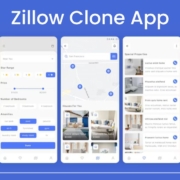Property Management Software for Efficient Operations
Managing properties—whether they are residential, commercial, or industrial—requires careful coordination of multiple processes. From tenant communications and rent collection to maintenance scheduling and financial reporting, every aspect must be efficiently handled to ensure smooth operations. Property Management Software (PMS) has emerged as a game-changer in this regard, offering an integrated platform to manage these diverse tasks effectively.
This article explores what property management software is, its key features, benefits, and how it is transforming the real estate industry.
What is Property Management Software?
Property Management Software is a digital solution designed to simplify and centralize property-related operations. It serves as a single platform for property managers, landlords, and real estate companies to manage administrative tasks, tenant relations, maintenance requests, financial tracking, and more.
Rather than juggling spreadsheets, emails, and paper records, PMS provides an organized digital hub that improves accuracy, saves time, and enhances overall productivity.
Core Features of Property Management Software
Modern PMS platforms offer a wide range of functionalities tailored to meet the needs of property managers. Some common features include:
1. Tenant Management
A tenant database allows property managers to track lease details, payment history, and communication records. This ensures better relationship management and quick access to essential information.
2. Rent Collection & Payment Processing
Many PMS tools offer online payment portals, enabling tenants to pay rent digitally. Automated reminders can be set to reduce late payments and streamline financial transactions.
3. Maintenance Scheduling
Property management often involves coordinating repairs and upkeep. With PMS, managers can log maintenance requests, assign tasks to vendors, and track completion status.
4. Accounting & Financial Reporting
Built-in accounting tools can track income, expenses, invoices, and generate financial reports for property owners or stakeholders.
5. Document Management
Leases, contracts, inspection reports, and other important documents can be stored securely in the software for quick retrieval.
6. Communication Tools
Integrated messaging or email features enable seamless communication between property managers, tenants, and service providers.
Benefits of Property Management Software
1. Time Efficiency
Automating repetitive tasks like rent reminders, payment tracking, and maintenance scheduling allows property managers to focus on strategic operations.
2. Improved Accuracy
Digital records reduce the risk of human error and provide reliable data for decision-making.
3. Cost Savings
By optimizing workflows and reducing manual labor, PMS can lower operational costs over time.
4. Better Tenant Experience
Quick response to maintenance requests, transparent communication, and easy payment options lead to improved tenant satisfaction.
5. Centralized Data Access
All property-related data can be accessed from a single dashboard, even remotely, ensuring managers stay in control from anywhere.
Use Cases of Property Management Software
Residential Properties
For apartment complexes, condominiums, and single-family rentals, PMS can simplify lease management, rent collection, and tenant engagement.
Commercial Properties
For office buildings and retail spaces, the software helps track long-term lease agreements, maintenance schedules, and property performance.
Industrial Properties
Warehouses and manufacturing facilities benefit from asset tracking, compliance monitoring, and maintenance scheduling capabilities.
Choosing the Right Property Management Software
Selecting the right PMS depends on the size of the property portfolio, budget, and specific needs. Key factors to consider include:
- Scalability – Ability to grow as your property portfolio expands.
- User-Friendly Interface – Ensures quick adoption by staff and tenants.
- Customization – Flexibility to adapt to your business workflow.
- Integration Capabilities – Compatibility with accounting tools, CRM, and other software.
- Security Features – Protects sensitive tenant and financial data.
The Role of Cloud Technology in PMS
Cloud-based property management software has become increasingly popular because it allows data access from anywhere with internet connectivity. This is particularly useful for property managers handling multiple locations, as it enables real-time updates and collaboration.
Future Trends in Property Management Software
The property management industry is evolving with technological advancements. Some emerging trends include:
- AI-Powered Analytics – Predictive analytics for rent pricing and maintenance needs.
- Mobile Applications – Mobile-friendly platforms for tenants and managers.
- IoT Integration – Smart devices for security, energy efficiency, and maintenance monitoring.
- Automation Expansion – More automated workflows for leases, payments, and reporting.
Conclusion
Property Management Software is no longer a luxury—it’s an essential tool for modern property managers. By centralizing operations, improving efficiency, and enhancing tenant satisfaction, PMS helps professionals stay competitive in a fast-paced real estate market.


